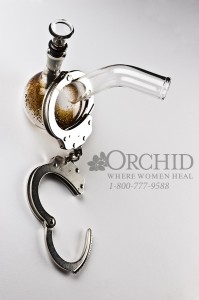Why Some Cops Support Drug Legalization

You might be surprised to hear that there are police officers out there who actually support legalizing all drugs, not just marijuana.
In light of just how much of a failure, and money pit, the war on drugs in this country has been, there are proponents of not only decriminalizing drugs but, making them legal.
Those cops who are perhaps more enlightened realize that society’s portrayal of people with chronic drug problems is both damaging and morally flawed.
Those in the field of addiction treatment, as well as those who have the disease of addiction, know all too well that sobriety, is often interspersed with the setbacks – relapses – as part of the condition. But because of an emphasis by the court system on abstinence-only drug programs, and an emphasis on punishment over progress, these normal and accepted setbacks in recovery were exacerbated by harsh penalties. In many cases, too, the sufferer has legal issues, such as felony convictions for drug-related offenses, rendering them unemployable.
Why Some Cops Support Drug Legalization
There’s an actual a group of law enforcement officials that is opposed to the war on drugs called Law Enforcement Against Prohibition (LEAP). You might also be surprised that this group isn’t just made up of cops; it also involves prosecutors and judges. LEAP stands for legalizing drugs and, in many ways, are in the best position to see the injustices and ineffectiveness of the criminal justice system up close.
They also see first-hand what a financial drain the current drug laws exact on taxpayers and local, state, and even the federal government with such issues as court costs as well as housing costs in our jails and prisons.
Furthermore, LEAP recognizes that a punitive approach to drug-related offenses, rather than a rehabilitative one, only succeeds in ruining lives.
So, what’s the difference between decriminalization and legalization?
While decriminalization laws can do many good things, such as reducing law enforcement and incarceration costs, allowing police to focus on more urgent and egregious matters, and keeping casual substance users out of a criminal justice system that already destroys far too many lives, legalization of drugs actually takes things a step further in protecting citizens.
It may seem counter-intuitive but, consider LEAP’s argument:
LEAP supports the complete legalization of drugs because it can accomplish an important thing that decriminalization can’t: it sets up a system of regulated potency and purity, so that users can know exactly what they’re putting in their bodies. This serves to reduce the rate of accidental overdose among users. And, if someone does overdose, drug legalization laws can help shift stigma so that people are no longer afraid to call for help without fear of prosecution.
Furthermore, decriminalization laws don’t impose age restrictions on sales nor do they stop the violence resulting from drug-related mayhem and turf wars that result from law enforcement intervention. They also don’t necessarily prevent glaring racial disparities in the application of justice as currently revealed in the sheer numbers of black and other people of color who are incarcerated when compared to their white counterparts. And they do nothing to impact the exorbitant profits that privatized prisons and violent criminal gangs are making off of the war on drugs policies.
If you are facing drug-related charges due to your substance abuse disorder or addiction to drugs, drug treatment is an option. Rehabs offer an array of treatments and services including detox, rehabilitation, and case management – which can help you address the issues you are facing, including legal issues. Please call toll-free 1-800-777-9588.
